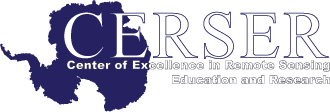 E-Learn 2010: World Conference on E-Learning in Corporate, Government, Healthcare & Higher Education E-Learn 2010: World Conference on E-Learning in Corporate, Government, Healthcare & Higher Education
Orlando, Florida - October 18 - 22, 2010
Dr. Farrah Chandler, Chair of the Math & Computer Science Department at ECSU, attended this years Association for the Advancement of Computing in Education (AACE) conference in Orlando, Florida presenting a paper entitled “Connecting In-service and Pre-Service Teachers Through E-mentoring in Mathematics.”
The AACE conference provides a unique multi-disciplinary forum for Government, Healthcare, Education, and Business professionals to discuss and exchange the latest research, development, applications, issues, and strategies, to explore new technologies, and to identify solutions for today’s challenges related to e-learning and distance learning. E-learning has mushroomed during the past decade. The papers at this conference document what is happening across the education and training areas. AACE continues to reveal its dedication to a substantive and worldwide conversation, analysis, and discussion about e-Learning.
Connecting In-service and Pre-Service Teachers Through E-mentoring in Mathematics
Research indicates that meaningful support from the Local Education Agency (LEA) or the Institute for Higher Education (IHE) would greatly affect the satisfaction and subsequent retention of new teachers (Ingersoll, 2003). In this project, in-service elementary teachers enrolled in a graduate mathematics methods course mentored pre-service elementary teachers enrolled in an undergraduate mathematics methods course on the development of effective lesson plans.
This project aims to explore the influence of virtual mentoring on pre-service elementary teacher’s ability to and confidence in lesson planning skills on mathematics topics prior to student teaching experiences. The Masters in Education (MED) program at the researcher’s university, the program where the mentor participants of this study were chosen, is primarily a distance-learning program. Students are accepted and instructed using three different methods of instructions. The program offers instruction for traditional on-campus students who attend class on-campus, but interact with other students via video-conference technology, students who receive face-to-face instruction at off-site locations, and students who only receive instruction via video conference technology. Some of the MED candidates live and teach as far away as 1.5 hours from the university. However, at this time, the undergraduate program which enrolls the project mentees, is a traditional on-campus program. So, means of traditional mentoring, where mentors and mentees interact face-to-face commonly in school environments, isn’t possible. Therefore, the researchers utilized two forms of virtual communication platforms to collect data for this project: Blogs and Email. |

